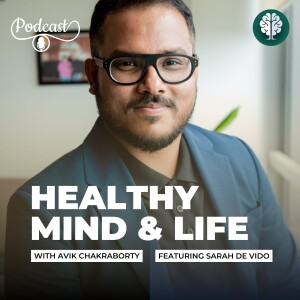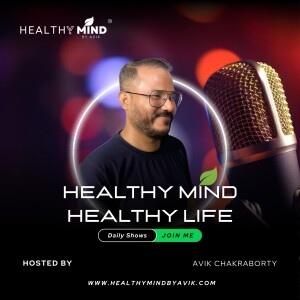
- Podcast Features
-
Monetization
-
Ads Marketplace
Join Ads Marketplace to earn through podcast sponsorships.
-
PodAds
Manage your ads with dynamic ad insertion capability.
-
Apple Podcasts Subscriptions Integration
Monetize with Apple Podcasts Subscriptions via Podbean.
-
Live Streaming
Earn rewards and recurring income from Fan Club membership.
-
Ads Marketplace
- Podbean App
-
Help and Support
-
Help Center
Get the answers and support you need.
-
Podbean Academy
Resources and guides to launch, grow, and monetize podcast.
-
Podbean Blog
Stay updated with the latest podcasting tips and trends.
-
What’s New
Check out our newest and recently released features!
-
Podcasting Smarter
Podcast interviews, best practices, and helpful tips.
-
Help Center
-
Popular Topics
-
How to Start a Podcast
The step-by-step guide to start your own podcast.
-
How to Start a Live Podcast
Create the best live podcast and engage your audience.
-
How to Monetize a Podcast
Tips on making the decision to monetize your podcast.
-
How to Promote Your Podcast
The best ways to get more eyes and ears on your podcast.
-
Podcast Advertising 101
Everything you need to know about podcast advertising.
-
Mobile Podcast Recording Guide
The ultimate guide to recording a podcast on your phone.
-
How to Use Group Recording
Steps to set up and use group recording in the Podbean app.
-
How to Start a Podcast
-
Podcasting
- Podcast Features
-
Monetization
-
Ads Marketplace
Join Ads Marketplace to earn through podcast sponsorships.
-
PodAds
Manage your ads with dynamic ad insertion capability.
-
Apple Podcasts Subscriptions Integration
Monetize with Apple Podcasts Subscriptions via Podbean.
-
Live Streaming
Earn rewards and recurring income from Fan Club membership.
-
Ads Marketplace
- Podbean App
- Advertisers
- Enterprise
- Pricing
-
Resources
-
Help and Support
-
Help Center
Get the answers and support you need.
-
Podbean Academy
Resources and guides to launch, grow, and monetize podcast.
-
Podbean Blog
Stay updated with the latest podcasting tips and trends.
-
What’s New
Check out our newest and recently released features!
-
Podcasting Smarter
Podcast interviews, best practices, and helpful tips.
-
Help Center
-
Popular Topics
-
How to Start a Podcast
The step-by-step guide to start your own podcast.
-
How to Start a Live Podcast
Create the best live podcast and engage your audience.
-
How to Monetize a Podcast
Tips on making the decision to monetize your podcast.
-
How to Promote Your Podcast
The best ways to get more eyes and ears on your podcast.
-
Podcast Advertising 101
Everything you need to know about podcast advertising.
-
Mobile Podcast Recording Guide
The ultimate guide to recording a podcast on your phone.
-
How to Use Group Recording
Steps to set up and use group recording in the Podbean app.
-
How to Start a Podcast
-
Help and Support
- Discover

Welcome back to another episode of "Healthy Mind, Healthy Life." I'm your host, Avik, and today we have a very special guest joining us. She is an esteemed expert in the field of functional nutrition, with an impressive background in scientific research and a passion for optimizing health. Please welcome Sarah De Vido!
So, grab a cup of tea, find a comfortable spot, and get ready to be inspired by the incredible Sarah De Vido. Let's dive into the world of "Healthy Mind, Healthy Life." Before we begin, make sure to subscribe to our podcast to receive updates on future episodes, and if you enjoy what you hear today, consider leaving us a review. Your feedback means the world to us!
During this captivating conversation, together, we cover a wide range of topics, including:
Can you explain what abnormal proteins are and how they differ from regular proteins found in our diet?
What are some common sources of abnormal proteins in the diet, and how prevalent are they in our food supply?
How do abnormal proteins affect our health? Are there specific diseases or conditions that are associated with their consumption?
Is there a particular group of people who may be more susceptible to the negative effects of abnormal proteins in their diet?
Are there any regulations or guidelines in place to monitor and control the presence of abnormal proteins in our food?
What are the potential long-term consequences of consuming abnormal proteins on public health, and should we be concerned?
Are there any specific dietary recommendations or strategies to minimize our exposure to abnormal proteins?
How does cooking or processing methods affect the presence or activity of abnormal proteins in our food?
Are there any ongoing research or studies investigating the impact of abnormal proteins on public health, and what are some of the key findings so far?
What steps can individuals take to educate themselves and make informed choices about the proteins they consume in their diet?
Are there any promising developments or potential solutions being explored to mitigate the risks associated with abnormal proteins in our food?
In your opinion, what role should policymakers and regulatory agencies play in addressing the potential public health concerns related to abnormal proteins?
How can healthcare professionals and nutritionists raise awareness about this issue and support individuals in making healthier dietary choices?
Are there any misconceptions or myths surrounding abnormal proteins that you'd like to address?
Looking to the future, what changes do you think are necessary to ensure a healthier and safer food supply when it comes to abnormal proteins?
Stay tuned for our future episodes, where we'll continue to explore the connection between a healthy mind and a healthy life, featuring experts, inspiring stories, and practical tips to support your well-being journey.
Get full access to Healthy Mind, Healthy Life at healthymindbyavik.substack.com/subscribe
More Episodes
Create your
podcast in
minutes
- Full-featured podcast site
- Unlimited storage and bandwidth
- Comprehensive podcast stats
- Distribute to Apple Podcasts, Spotify, and more
- Make money with your podcast
It is Free
- Privacy Policy
- Cookie Policy
- Terms of Use
- Consent Preferences
- Copyright © 2015-2025 Podbean.com






